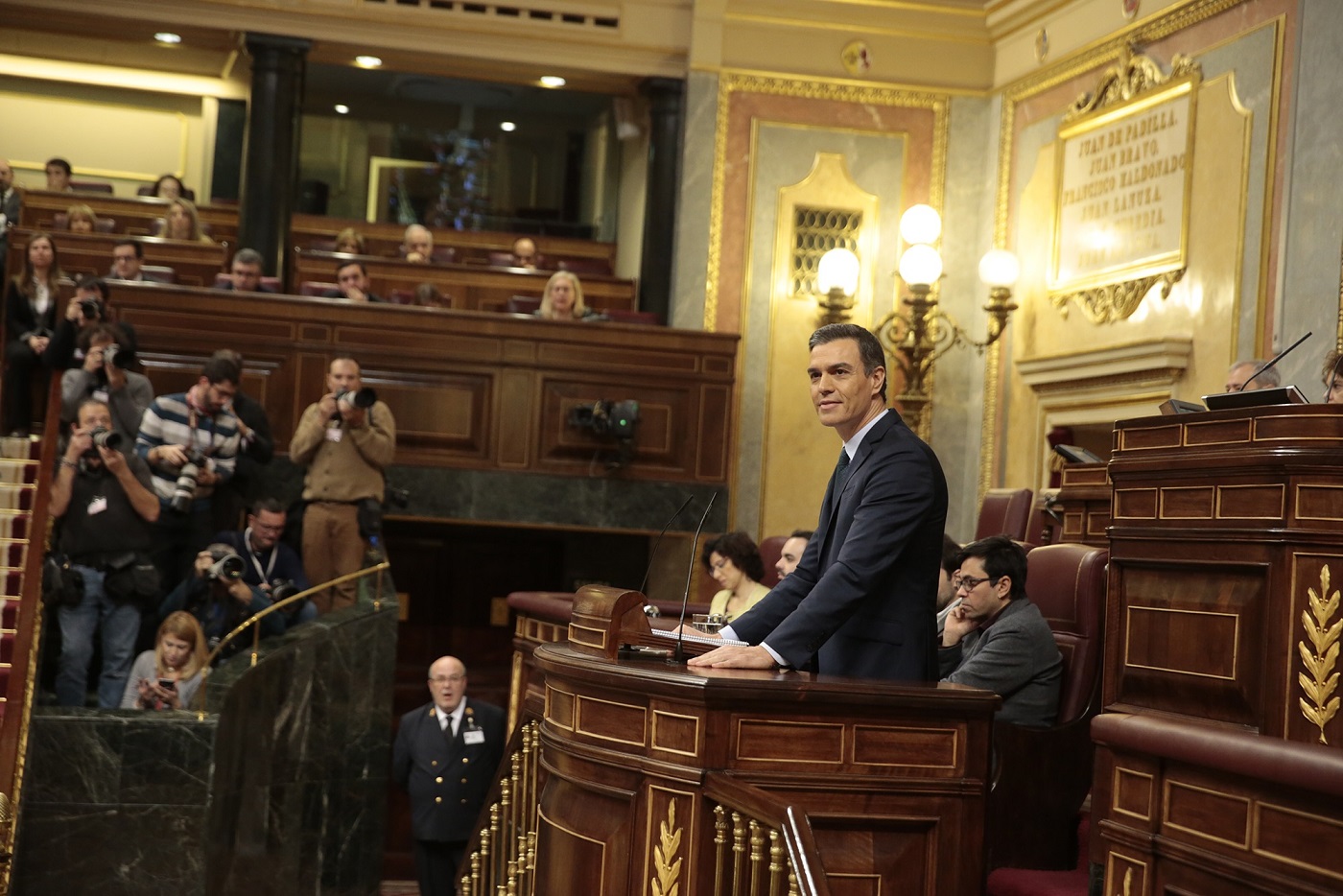The coalition of PSOE and Sumar has reached the majority needed in Parliament to form a government. The support of the right-wing and left-wing Catalan and Basque parties to the coalition offers an unusual but interesting plurality of voices for the new legislature.

Juanjo Andrés Cuervo
Against all odds, Spain will be governed by a left-wing government. The Partido Socialista Obrero Español (PSOE) and Sumar obtained the majority of deputies and established a coalition in Parliament. They repeated the achievement of PSOE and Unidas Podemos in January 2020.
This feat seemed almost impossible not so long ago. The results of Spanish regional and municipal elections of 28 May offered a ghastly picture for the left. While PSOE and especially Unidas Podemos lost a significant number of votes and hence deputies in the different cities of Spain, PP and Vox increased their power considerably in many regions. 2023 looked like the year in which the right-wing parties PP and Vox would gain the power in Spain.
The leader of the right-wing PP, Alberto Nuñez Feijóo, did not conceal his delight after the elections held in May. He claimed that ‘Spain has started a new political cycle.’ The winds of reaction that spread across European parliaments seemed to have crossed the Pyrenees.
And yet, all the right-wing euphoria dissipated after the general elections of 23 July. In recent weeks, that feeling has been channelled in the most reactionary riots, exemplified in the attack on the PSOE headquarters.

This picture illustrated the frustration of people who believed that the time of Pedro Sánchez, the main target of the right-wing attacks, and their counterparts of Sumar was over. So, how did the left defeat the right again?
The snap election and the huge mobilisation
One of the keys for the victory of the left was the excellent strategy employed by the PSOE. Amid the debacle in the regional and municipal elections, Pedro Sánchez took a risky decision. In 29 May, just the morning after, the PSOE leader decided to call for a snap general election. It paid off very well. Some months ago, I wrote in The Prisma that the surprising snap election could mobilise the left-wing voters. It was the only chance to stop the seemingly inevitably victory of PP and Vox.
The voter turnout for the general elections of 23 July was over 70%, a significant increase from the 2019 general elections. The left saw the threat of a far-right government and answered the call to vote.
In September, Alberto Nuñez Feijóo tried to form a government in the investiture session. Where he failed, Pedro Sánchez was successful a week ago. He became again PM of Spain, an achievement that seemed unthinkable some months ago.
Since the vote of no confidence against former PP leader Mariano Rajoy in June 2018, the PSOE leader has been the PM for over 5 years. He could retain the leadership for a decade.
 Considering that he was ousted by his own party in 2016, his political trajectory is astonishing.
Considering that he was ousted by his own party in 2016, his political trajectory is astonishing.
PSOE-Sumar and the support of the right-wing parties
The new legislature will be probably the most challenging for the left. Not so much for the demonstrations against the Amnesty, which presumably will fade away, or the incendiary rhetoric of reactionary politicians like Santigo Abascal or Isabel Díaz Ayuso.
The most challenging aspect of the following political term will be reaching agreements within such a mixture of different ideologies in Parliament. The improvement of the material and social conditions for the working-class and vulnerable groups will be harder than in the previous legislature.
PSOE and Sumar have got the support of the left-wing EH Bildu and Esquerra Republicana, and the right-wing PNV and Junts per Catalunya.
How is it possible that so diverse political parties have joined together? The simple answer is their fear of a far-right government formed by PP and Vox. The rise of a parliamentary fascism in Spain is essential to understand the support of the Basque and Catalan political parties for the new government.
It would not surprise anybody that, despite their support of the investiture of Pedro Sánchez, PNV and Junts per Catalunya will be less ambitious than Sumar, EH Bildu or Esquerra Republicana in their social measures.
 At the same time, they cannot diminish the previous accomplishments of PSOE and Unidas Podemos. Since 2019, the average wage of a Spanish worker has increased by 2000 euros.
At the same time, they cannot diminish the previous accomplishments of PSOE and Unidas Podemos. Since 2019, the average wage of a Spanish worker has increased by 2000 euros.
The labour reform, the creation of a living income and the significant increase of the minimum wage up to 1,080€ are fundamental to understand the improvement of the living standards of most of the people. The social and economic measures promoted by Unidas Podemos and the labour reform promoted by Yolanda Díaz are key in this regard. But even the labour reform was only passed by one single vote in Parliament. The vote that made the difference was that of Alberto Casero, a PP deputy who made a mistake voting remotely. This almost bizarre incident depicts the complexity of current Spanish politics, where the fragmentation in Parliament makes it harder to attain a majority to pass legislations.
Nonetheless, the plurality in the political arena might be an excellent example of the resilience of Spanish democracy.
The political analyst Enric Juliana wrote a column, titled ‘ “Todos dentro” (Everyone inside), about an unusual fact in current Spanish politics. A country that had suffered bloody conflicts in the last centuries, now witnesses a huge diversity of voices inside the Parliament. The old ‘bipartidismo’, when PP and PSOE hegemonically led Spain, is over.
(Photos: Pixabay)












.jpg)












